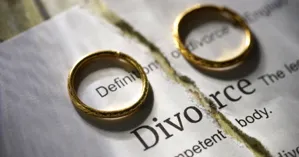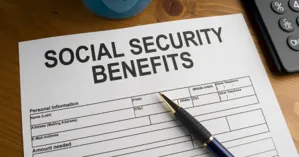- Quick Summary
- You Receive a Pension
- You're in Jail or Prison
- You Had a Divorce
- You've Remarried
- You've Failed to Comply
- You Improve Medically
- You Convert to Retirement
- You don't make Medicare Part B premium payments
- You've exceeded Monetary Limits
- You've Exceed Work Limitations
- You Have Your Own Benefits
- You voluntarily suspend your benefits
- Conclusion

- Quick Summary
- You Receive a Pension
- You're in Jail or Prison
- You Had a Divorce
- You've Remarried
- You've Failed to Comply
- You Improve Medically
- You Convert to Retirement
- You don't make Medicare Part B premium payments
- You've exceeded Monetary Limits
- You've Exceed Work Limitations
- You Have Your Own Benefits
- You voluntarily suspend your benefits
- Conclusion
There are two types of Social Security: Social Security for Retirement and Social Security Disability Insurance (SSDI). Social Security Disability Insurance is also called Supplemental Security Income (SSI) disability benefits. These are great safety nets when you need them. But what if you lose them? Here are 12 reasons you could lose your Social Security benefits.
1. You Receive a Pension

Your benefits may be reduced or eliminated if you receive a pension from a job that doesn't pay Social Security.
2. You're in Jail or Prison

Your Social Security and SSI benefits are suspended if you're in jail or prison for over 30 days. After your incarceration, you can't receive benefits again until the start of the following month you're released. For example, if you're released in January, your benefits can begin again in February. However, your benefits are terminated if your jail or prison time is longer than 12 consecutive months. However, your wife or children's benefits will continue as long as they remain eligible.
3. You Had a Divorce

If you weren’t married to your spouse for ten years or longer, you cannot receive your spouse’s Social Security benefits.
4. You've Remarried

If you are married to a different person, you can’t collect your former spouse’s benefits anymore. But this will change if your current marriage ends due to divorce, annulment or death.
5. You've Failed to Comply

The Social Security Administration (SSA) requires recipients to fulfill specific obligations to receive benefits. If your benefits are denied, you have the right to request a hearing in front of an administrative law judge (ALJ) to appeal the decision. The recipient must provide requested documentation, participate in medical evaluations, and report any changes in circumstances that affect eligibility. If you don’t do these things for any reason, your benefits could be suspended.
6. You Improve Medically

The SSA reviews disability cases to determine if there has been any medical improvement in the recipient’s condition. They want to see if there is any improvement in the recipient’s medical condition. If you have improved and you’ve reached a point where you can engage in substantial gainful activity (SGA) your benefits may be suspended.
7. You Convert to Retirement

You can’t receive both SSDI and Social Security retirement benefits. So once you reach full retirement age and start receiving full retirement benefits, you lose your SSDI benefits.
9. You've exceeded Monetary Limits

Surpassing the Social Security Administration’s resource limits can cause you to lose your benefits. If you are on SSDI, any increase in resources or income beyond what is allowed will lead to your benefits being suspended.
10. You've Exceed Work Limitations

If you are receiving social security disability benefits, you are limited to the amount of paid work you can do. You may no longer be eligible for benefits if you surpass these limits.
11. You Have Your Own Benefits

If you are entitled to your own benefits and these benefits are more than your spouse’s, you cannot receive your spouse’s benefits. In other words, you can’t double dip.
12. You voluntarily suspend your benefits

You can voluntarily suspend your benefits. This might happen if you get a good-paying job. But if you voluntarily suspend benefits, others receiving benefits on your record will have their benefits suspended. However, a divorced spouse will still be able to collect benefits.
Conclusion
It’s wise to be vigilant about your Social Security benefits. There are many rules and regulations that you must comply with to maintain benefits. Understanding the rules and regulations is crucial to ensure you continue to receive social security benefits. Following these rules will keep you and your family covered.






